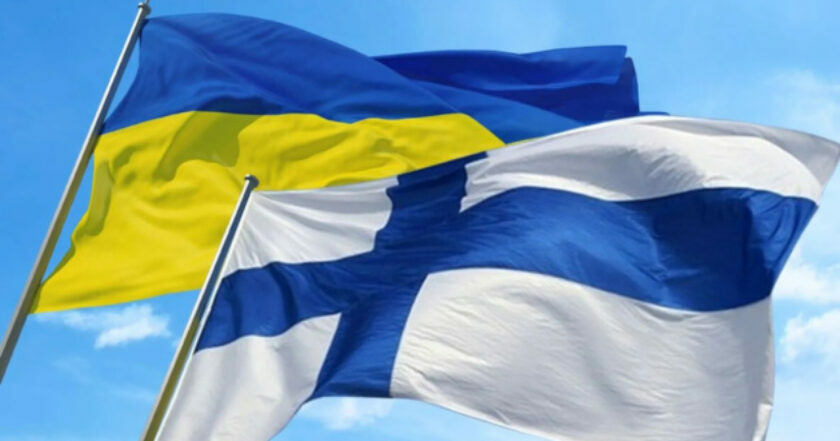Finland takes stand against "Finlandization" model for Ukraine, fearing collapse of global structure

Finland voiced its opposition to the concept of "Finlandization"—the forced neutrality that it was subjected to post-World War II—as a model for ending Ukraine's war with Russia. They firmly believe that Kyiv should have the freedom to chart its own political path, and any attempts to impose it on the country would only disrupt the global balance of power.
The Minister of Foreign Affairs of Finland, Elina Valtonen, stated this on November 11 on the sidelines of the Paris Peace Forum, Reuters reports.
The Finnish official emphasized that Ukraine has the right to choose a political course independently, and forcing it to neutral status will not ensure lasting peace with the Russian Federation.
"I'm against it [Finlandisation – ed.], yes. Let's face it: Ukraine was neutral before they were attacked by Russia. It's definitely not something I would be imposing on Ukraine. Definitely not as a first alternative," Valtonen stressed.
She also noted that she does not believe in the possibility of trusting Russia even in case of signing an agreement on neutral status.
Finland achieved independence in 1917 after being under the rule of Tsarist Russia for more than 100 years.
It then desperately repelled the Soviet invasion in 1939 and, for a time, supported Nazi Germany in its attempt to regain lost territories. However, the war ended with the Allies' victory, so Finland was forced to maintain accommodating relations with the Russian Federation for decades and follow the path of neutrality.
This tactic, known as "Finlandization," became necessary to maintain independence. However, the situation changed dramatically after the beginning of the Russian war against Ukraine—Finland, like Sweden, renounced its neutral status and joined NATO.
It's worth mentioning that Vladimir Putin has stressed the importance of Ukraine maintaining a neutral status to begin peace talks. With the potential shift in the US's foreign policy under new President Donald Trump, who wants to end the war in Ukraine as soon as possible, some allies are worried that they may push for Ukraine to adopt a neutral stance as a compromise.
Valtonen expressed fears that pressure from large countries could threaten Ukraine's sovereignty. According to her, the negotiations on Ukraine's future must consider Kyiv's position without the intervention of major powers "through the head of Ukraine."
"I really want to avoid a situation where any European country, or the United States for that matter, starts negotiating over the heads of Ukraine. A larger power can not just grab territory but also essentially weaken the sovereignty of another nation," the minister concluded.
According to Elina Valtonen, the compulsion to be neutral will undermine the international order, only increase the threats to Ukraine, and not bring sustainable peace.
For reference:
As experts of the Institute for the Study of War (ISW) point out, Russian dictator Vladimir Putin demonstrates his disinterest in a negotiated ceasefire. He continues to seek to destroy Ukrainian statehood.
Putin demands Kyiv's refusal to join NATO and international recognition of the Donetsk, Luhansk, Zaporizhzhia, Kherson regions, and Crimea as Russian territories.
In his turn, Zelensky, in response to the proposal of an alleged peaceful resolution of the war by the leader of the Russian Federation, Vladimir Putin, said that such conditions are an ultimatum that cannot be trusted. The head of state also compared Putin's actions with the leader of Nazi Germany, Hitler.



















































